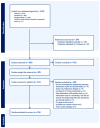The Relationship Between Attachment to Pets and Mental Health and Wellbeing: A Systematic Review
- PMID: 40281976
- PMCID: PMC12023967
- DOI: 10.3390/ani15081143
The Relationship Between Attachment to Pets and Mental Health and Wellbeing: A Systematic Review
Abstract
While pet ownership is sometimes associated with better mental health, research on this relationship has been inconsistent. Some researchers have considered what factors may impact this relationship, such as owners' attachment to their pets. The aim of this systematic review was to investigate how attachment to pets relates to owner mental health and wellbeing. This review followed PRISMA guidelines. Searches were conducted using PsychInfo, Scopus and Google Scholar. Any peer-reviewed empirical studies, in English, investigating attachment to pets and mental health and wellbeing outcomes, were included. Of the 116 included studies, 15 studies found that higher attachment was associated with better mental health, 22 studies found that higher attachment was associated with worse mental health, 36 studies found mixed results and 33 studies found no significant relationship. Having a stronger attachment to one's pet tended to be associated with better mental health when investigating outcomes in children, and when investigating outcomes related to wellbeing. Stronger attachment tended to be associated with worse mental health when investigating mental health symptomology (e.g., depression and anxiety). It may also be influenced by the owner's relationships with other people. Due to the cross-sectional design used by studies in this review, we cannot infer the direction of causality for the relationship between attachment to pets and mental health. Results indicate that having a strong attachment to one's pet is not necessarily associated with better mental health and wellbeing. Future longitudinal research is needed to better understand how attachment to pets affects mental health, and what factors may influence this relationship.
Keywords: cats; dogs; mental illness; pet–owner bond; pet–owner relationships.
Conflict of interest statement
The authors declare no conflicts of interest.
Figures
References
-
- Animal Medicines Australia Pets in Australia: A National Survey of Pets and People. [(accessed on 8 January 2024)]. Available online: https://animalmedicinesaustralia.org.au/wp-content/uploads/2022/11/AMAU0....
-
- Applebaum J.W., Peek C.W., Zsembik B.A. Examining U.S. pet ownership using the General Social Survey. Soc. Sci. J. 2023;60:110–119. doi: 10.1080/03623319.2020.1728507. - DOI
-
- Herzog H.A. Biology, Culture, and the Origins of Pet-Keeping. Anim. Behav. Cogn. 2014;1:296–308. doi: 10.12966/abc.08.06.2014. - DOI
-
- Staats S., Wallace H., Anderson T. Reasons for Companion Animal Guardianship (Pet Ownership) from Two Populations. Soc. Anim. 2008;16:279–291. doi: 10.1163/156853008X323411. - DOI
-
- Allen K. Are Pets a Healthy Pleasure? The Influence of Pets on Blood Pressure. Curr. Dir. Psychol. Sci. A J. Am. Psychol. Soc. 2003;12:236–239. doi: 10.1046/j.0963-7214.2003.01269.x. - DOI
Publication types
LinkOut - more resources
Full Text Sources
Miscellaneous


